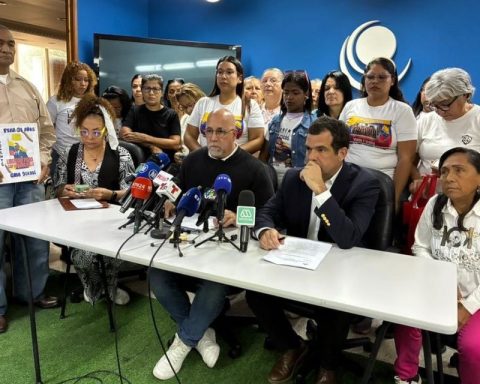This Tuesday (21), when the International Day for the Fight for the Elimination of Racial Discrimination is celebrated, the unprecedented research Black women in the labor marketcarried out by consultancy Trilhas de Impacto through the social network Linkedin, reveals that racial inclusion is still non-existent in Brazilian companies.
The survey interviewed 155 women aged between 19 and 55 years, with the prevailing average being between 30 and 45 years. Of the total number of participants, 50.3% have a university degree and a postgraduate or specialization degree; 13.5% master’s and doctorate; and 24.5% completed higher education. His areas of work are education, human resources, information technology (IT) and systems analysis, telemarketing, public relations, administration and commerce. Data collection was carried out in 2021 and 2022.
A Brazil Agency, the consulting director-president, Juliana Kaizer, informed that the most important fact is that 86% of the women interviewed reported cases of racism in the companies. “This, for me, is very relevant data, because all the women interviewed have completed higher education and are formally employed. It caught my attention a lot that the fact that people have a higher education or postgraduate degree does not prevent them from suffering racism. It’s scary,” said Juliana.
The researcher is also a black woman, professor of the MBA in social responsibility and sustainability at the Institute of Economics at the Federal University of Rio de Janeiro (UFRJ) and the diversity course at the Business School (IAG) of the Pontifical Catholic University of Rio de Janeiro (Puc Rio). She is also a postgraduate student at Fundação Getulio Vargas and advisor to the Brazilian Association of Human Resources Rio de Janeiro section (ABRH-RJ).
Myth
In Juliana’s evaluation, the research debunks the myth of racial democracy, which indicates that, if a person has a good level of education, he will not suffer racism. The objective was to know the reality of black and brown women in the labor market.
During data analysis, Juliana realized that some aspects were repeated in the reports and decided to divide them into categories for a better understanding of the qualitative results. Hair, for example, was one of those aspects. More than 70% of women reported that, during their professional journey, they needed to explain why their hair was straightened, it was black, or the reason they put lace in the hair (prosthesis made strand by strand on a microtulle screen). “I think this is an important piece of data for us to consider.”
Another fact that drew attention was that 68% of the professionals said they had been mistaken, at some point, for the company’s cleaning lady or cleaning lady. “I’m talking about women with complete higher education and post-graduation”, she pointed out. An area coordinator mentioned that, every day, the sector leader asked her to leave her personal space and that of other colleagues in order. “She couldn’t understand why she was asked that. Colleagues would leave and she would clean the room. Until she realized that she was being the victim of racism. But it took a while, because she was in this situation for more than a year ”.
For Juliana, the situation is very critical. “It’s a scary business.” The survey reveals that more than 50% of those consulted said that their skin color and the place where they lived was asked during the interviews. online in recruitment. “They realized that, during the interviews, in the selection process, everything was going very well in the format online, with resume analysis, but that, at the time of the live interview, with the camera open, the recruiters, in general white women, backtracked. “This was also an aspect that black professionals spoke about a lot”.
Attention was also drawn to the fact that although more than 70% of respondents have a postgraduate degree, this does not make them move up in the company. “Many have been in the position for ten years, they don’t see anyone similar to them in a leadership position, in short, they don’t feel encouraged”.
Distancing
As a black researcher, Juliana said it was difficult to leave herself a little to focus on research in a distanced way. “Because I’m talking about myself too. These are barriers that I also go through. If I speak three languages, if I live outside Brazil, it’s no use. My skin color comes first. And that’s what the research showed. Many women speak English, some have master’s and doctoral degrees and are treated in an uplifting way. And if there is racism, it is because there are racists”.
Women who are in coordination and management positions stated that when they found out that a white colleague performed the same function but had a higher salary, and they asked for a raise, companies created a position to justify that the other person, in the same position, earned more. All, without exception, spoke of exhaustion at work, having to demonstrate competence all the time and, at the same time, not earning enough to survive.
Another important fact is that black women do not grow in their professional careers in Brazil. “They may even grow in positions, but they don’t grow in money”. Juliana highlighted that 52% of students at federal universities are black and questioned why this practice is not repeated in companies, with black people in leadership positions, earning good money. According to a 2020 study by the Ethos Institute, black women represent 9.3% of the staff of the 500 largest companies in Brazil, but are present in only 0.4% of senior positions.
She hopes that companies will be embarrassed by the result of the survey and that this may lead to a change in behavior. “We have a problem to solve as a nation”. In the survey, of the 155 interviewees, at least 40 women spoke of the same companies and the name of 16 of these companies was repeated in the quotes.
















